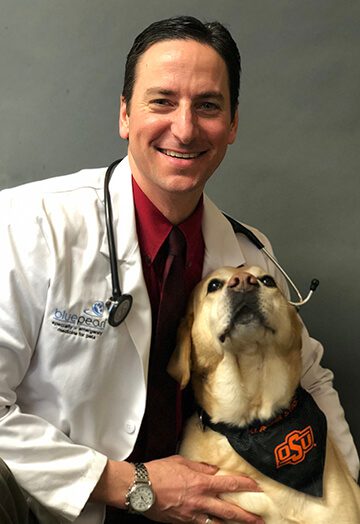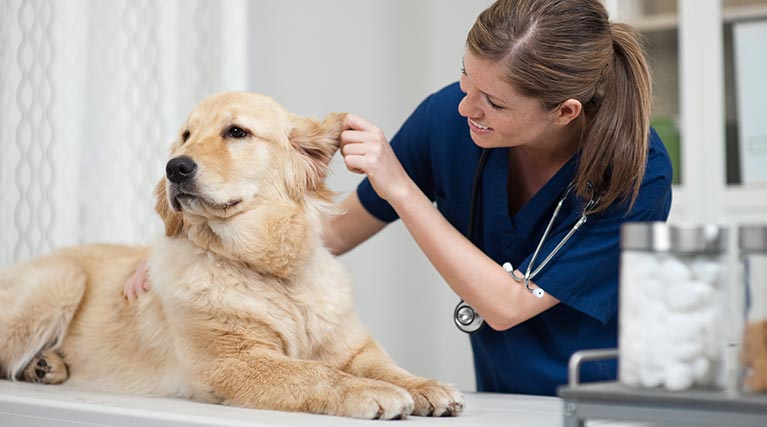Maintain Your Pet Safe with Normal Pet Vaccinations from a Trusted Veterinarian
Maintain Your Pet Safe with Normal Pet Vaccinations from a Trusted Veterinarian
Blog Article
Vaccination Guidelines From Your Relied On Vet
Vaccination guidelines offered by your trusted vet play a crucial role in protecting your animal's health and well-being. Core injections are fundamental for all pets, while non-core injections can be customized to ecological direct exposures and particular way of lives. Understanding the nuances of inoculation routines, which start as very early as six to 8 weeks, is essential for ideal protection. In addition, resolving common false impressions surrounding vaccines can better boost family pet owners' self-confidence in these preventative actions. As we discover these essential elements, it becomes progressively clear why regular appointments with your veterinarian are indispensable for notified decision-making.

Importance of Vaccinations
Vaccinations play a critical role in safeguarding pet dogs against a series of avoidable illness. By promoting the body immune system to acknowledge and combat specific microorganisms, injections substantially minimize the incidence of transmittable diseases that can impact a pet dog's health and wellness and longevity. Not just do vaccinations protect private pets, yet they additionally add to herd resistance, thus reducing the general occurrence of diseases in the family pet populace.
Timely vaccinations help to mitigate the spread of conditions such as rabies, parvovirus, and distemper, which can have severe repercussions for both human beings and animals. Inoculations are frequently a need for boarding centers, grooming solutions, and dog parks, making them vital for those who desire to socialize their family pets.

Core Vaccinations for Family Pets
While the details inoculation needs of family pets can differ based upon individual aspects, core injections are universally suggested to safeguard versus the most typical and serious diseases (Pet Vaccinations). Core injections are those deemed crucial for all pets, regardless of their way of living or geographic place, as they safeguard versus possibly fatal and very contagious ailments
For canines, the core vaccines consist of those for canine distemper, parvovirus, adenovirus (hepatitis), and rabies. Adenovirus can result in liver illness, while rabies is a zoonotic condition that postures a threat to both people and animals.
In pet cats, core injections incorporate feline panleukopenia, feline calicivirus, feline herpesvirus (rhinotracheitis), and rabies. Feline panleukopenia is a very infectious viral disease that affects the immune system and intestinal tracts. Calicivirus and herpesvirus are major factors to top breathing infections in felines, while rabies remains a crucial issue for public health.
Seek advice from with your veterinarian to guarantee your pet dogs get their core inoculations on timetable.
Non-Core Vaccines Explained
Non-core vaccines are customized to address certain dangers related to a pet's exposure, lifestyle, and atmosphere to certain illness. Unlike core vaccinations, which are universally recommended for all family pets, non-core vaccines are thought about based on specific circumstances. These vaccines are particularly important for animals that might come across special microorganisms because of their geographical place, traveling habits, or tasks.
Examples of non-core vaccinations consist of those for Bordetella bronchiseptica, which is linked to kennel coughing, and Lyme disease, brought on by ticks. Animals that regularly engage with other pets, such as those in boarding centers, pet parks, or brushing environments, may profit from Bordetella inoculation. If you live in a location where Lyme read here disease is common, immunizing versus this disease can be a prudent option for outdoor-loving pet dogs.
Other non-core vaccines might consist of those for leptospirosis, canine influenza, and feline leukemia, relying on the specific risk aspects existing. It is crucial to have a detailed discussion with your vet about your pet's way of living and the potential requirement for these vaccinations, guaranteeing a customized vaccination strategy that best secures your hairy close friend.
Vaccination Set Up Introduction

As animals mature, it is very important to stick to the suggested booster inoculations. Veterinarian Enterprise. For adult pets, core injections are typically provided every one to three years, depending upon the details vaccine and regional laws. Non-core vaccines might be recommended based upon way of living aspects and regional disease frequency, demanding a customized strategy
Normal veterinary check-ups are important for updating inoculation schedules. Your vet can offer support on one of the most ideal immunizations for your pet, factoring in age, health status, and ecological threats. By remaining aggressive and educated, animal owners can ensure their furry buddies obtain timely and effective vaccinations, therefore safeguarding their wellness and wellness throughout their lives.
Usual Misconceptions About Vaccinations
False impressions concerning pet dog vaccinations can bring about confusion and unwillingness among look these up animal owners regarding the booster shot process. One prevalent misconception is that injections are unnecessary for indoor pet dogs. While it's real that indoor pet dogs deal with lower risks, they are not completely immune to conditions, as virus can be presented through different ways, consisting of human clothing and various other check pet dogs.
Another misconception is that vaccinations can cause the conditions they aim to prevent. In truth, most injections consist of suspended or attenuated pathogens, which can not cause condition in healthy pets. Some pet dog owners additionally think that their animals need to not be vaccinated if they are currently healthy; however, vaccinations are a proactive procedure that aids avoid the start of disease.
Furthermore, lots of pet dog owners fear that vaccines will cause long-term health complications. While negative effects can happen, they are short-term and normally mild. The advantages of inoculation-- protecting animals from possibly life-threatening illness-- far surpass the risks. Comprehending these usual myths is crucial for liable family pet ownership and guaranteeing the health and wellness of your furry companions. Constantly consult your vet for exact info customized to your pet's particular requirements.
Verdict
In summary, adherence to vaccination standards is critical for ensuring the health and longevity of pets. Core vaccines supply necessary defense against significant diseases, while non-core vaccines address certain dangers based upon specific way of lives. Establishing a thorough vaccination schedule, combined with regular veterinary examinations, promotes optimum health and wellness management. Eliminating typical myths surrounding inoculations better enhances the value of informed decision-making in pet dog care. Inevitably, a positive approach to inoculations is crucial for preserving animal well-being.
Not only do inoculations secure individual pets, however they likewise contribute to herd resistance, consequently decreasing the overall occurrence of conditions in the pet dog population.
Misunderstandings concerning family pet inoculations can lead to confusion and unwillingness amongst family pet owners relating to the immunization process. While it's true that indoor family pets face lower risks, they are not totally immune to conditions, as virus can be presented through numerous ways, consisting of human clothing and other pet dogs.
Some pet dog owners likewise think that their animals ought to not be immunized if they are already healthy and balanced; however, inoculations are a positive measure that helps avoid the beginning of ailment.
The advantages of vaccination-- securing animals from possibly dangerous conditions-- much exceed the dangers.
Report this page